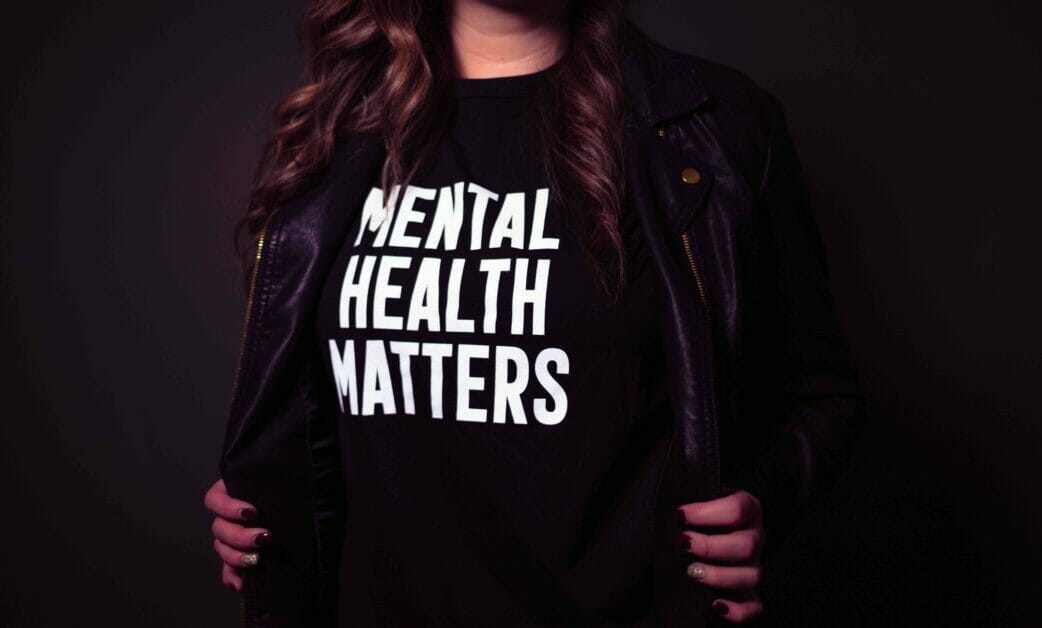
How Body Shaming Affects Mental Health: The Harmful Effects
It’s no secret that our bodies are constantly under scrutiny. From the media to social circles, it seems someone is always ready to comment about our physical appearance.
But what happens when these comments turn into body shaming? Unfortunately, it has become all too common.
Key Takeaways:
| Effect | Impact on Mental Health |
|---|---|
| Negative Body Image | Distorted self-perception, preoccupation with appearance, increased risk of unhealthy behaviors |
| Depression and Anxiety | Sadness, hopelessness, despair, fear of judgment, social anxiety |
| Anorexia Nervosa | Negative self-worth, dangerous self-starvation, malnutrition, heart problems, suicidal thoughts |
| Bulimia Nervosa | Shame and guilt around food, bingeing and purging, electrolyte imbalances, dehydration, depression, anxiety |
| Low Self-Esteem and Self-Worth | Feelings of unworthiness, negative self-image, reduced confidence |
| Social Isolation and Loneliness | Avoidance of social situations, feelings of loneliness, exacerbation of mental health issues |
| Increased Risk of Eating Disorders | Greater likelihood of developing anorexia nervosa, bulimia nervosa, or other eating disorders due to negative self-image |
We will go into more detail for every aspect of this chart below, we’ll also share some tips on coping with body shaming and building a positive relationship with your body.
The Impact of Body Shaming on Mental Health
Negative Body Image
Being constantly told that their body is not good enough can lead to feelings of shame, embarrassment, and self-consciousness.

This can result in a distorted perception of one’s body, leading to a preoccupation with weight, shape, and size.
People with negative body image are more likely to engage in unhealthy behaviors such as extreme dieting, over-exercising, and using harmful weight loss supplements.
These behaviors can lead to serious health problems and can even be life-threatening.
Depression and Anxiety
Body shaming can also have a significant impact on mental health by contributing to the development of depression and anxiety.

People who experience body shaming may feel embarrassed and ashamed, leading to sadness, hopelessness, and despair.
Additionally, body shaming can lead to social anxiety and the fear of being insulted or rejected by others.
People who experience social anxiety may avoid social situations, leading to feelings of loneliness and isolation, further exacerbating depression and anxiety.
The Connection Between Body Shaming and Eating Disorders
One of the most dangerous consequences of body shaming is the increased risk of developing an eating disorder.
Let’s examine the connection between body shaming and two types of eating disorders: anorexia nervosa and bulimia nervosa.
Anorexia Nervosa
This eating disorder is characterized by a severe restriction of food intake, leading to dangerously low body weight.

Body shaming can contribute to anorexia by reinforcing negative beliefs about one’s body.
When someone is constantly told that they are too fat or unattractive, they may begin to believe their only worth lies in their appearance. This can lead to a dangerous cycle of self-hatred and self-starvation.
The pressure to conform to a certain standard can lead to extreme dieting, unhealthy weight, and preoccupation with body image.
According to HelpGuide.org, anorexia nervosa can have serious physical and mental health consequences, including:
- Malnutrition and vitamin deficiencies
- Heart problems
- Depression and anxiety
- Suicidal thoughts and behaviors
Bulimia Nervosa
Bulimia nervosa is another eating disorder that can be triggered by body shaming. Those who struggle with bulimia may binge on large amounts of food and then purge through vomiting or using laxatives.

They may also exercise excessively or fast to compensate for their bingeing.
Body shaming can contribute to the development of bulimia by causing feelings of shame and guilt around food and eating.
When someone is constantly being judged for their body, they may turn to food as a source of comfort. However, this can quickly spiral out of control and lead to a cycle of bingeing and purging.
According to HelpGuide.org, bulimia nervosa can have serious physical and mental health consequences, including:
- Electrolyte imbalances
- Dehydration
- Stomach problems
- Depression and anxiety
It’s important to remember that eating disorders are complex conditions influenced by many factors, including genetics, environment, and individual experiences.
However, body shaming can be a contributing factor for some individuals. If you or someone you know is struggling with an eating disorder, it’s important to seek professional help as soon as possible.
How to Respond to Types of Body Shaming and Protect Mental Health
This table provides an overview of some of the most common types of body shaming, including their definitions and how they can affect mental health.
By raising awareness about the harmful effects of body shaming and promoting strategies for addressing it, we can help create a more inclusive and supportive society for all.
| Types of Body Shaming | Definition | Potential Effects on Mental Health | Example of Response |
|---|---|---|---|
| Fatphobia | Discrimination or prejudice against people who are too fat for their standard. | This can lead to low self-esteem, body dissatisfaction, depression, anxiety, and disordered eating behaviors. | If someone makes a fatphobic comment or joke, you could say, “I don’t think it’s okay to make fun of someone’s body size or shape. People come in all shapes and sizes, and everyone deserves to be respected and valued for who they are, not how they look.” |
| Skinny Shaming | Criticism or negative comments are directed at individuals who are perceived to be too thin. | This can lead to feelings of inadequacy, shame, and self-consciousness, contributing to unhealthy coping behaviors such as overeating or avoiding social situations. | “My body is my business, and I don’t appreciate criticism. Please refrain from making negative comments about my weight or body shape.” |
| Height Shaming | Mocking or making fun of individuals who are perceived to be too tall or too short | This can lead to insecurity, self-consciousness, and isolation, contributing to a negative body image. | “My height is a natural part of who I am, and I don’t appreciate being mocked or made fun of for it. Please show some respect and refrain from making derogatory comments about my height.” |
| Colorism | Discrimination or prejudice against people based on their skin color or complexion. | This can lead to feelings of inadequacy, low self-esteem, depression, anxiety, and a sense of not belonging. | If someone makes a derogatory comment about someone’s skin color or suggests that lighter skin is more desirable, you could respond by saying, “Skin color is not a measure of beauty or worth. We should celebrate and embrace the diversity of all skin tones and challenge harmful beliefs that perpetuate colorism.” |
| Muscle Shaming | Criticizing or ridiculing individuals who have a muscular physique | This can lead to shame, low self-esteem, and self-doubt. | “My body shape and size are my choices, and I don’t appreciate being criticized. Please respect my choices and refrain from commenting negatively about my appearance.” |
It’s also crucial to be aware of the potential harm body shaming can cause. Recognizing and addressing body shaming in all its forms is essential to promote a more inclusive and accepting society.
How to Overcome Body Shaming and Improve Mental Health
Positive Self-Talk and Self Acceptance
I know how difficult it can be to accept your body and love yourself when society constantly bombards you with messages about what “beautiful” and “perfect” is.
However, I have learned that practicing self-acceptance and positive self-talk can go a long way in combating body shaming and improving mental health.

One way to practice self-acceptance is to focus on what your body can do rather than what it looks like.
For example, instead of criticizing your thighs for being too big, focus on how strong they are and how they allow you to walk, run, and dance.
Another way to practice self-acceptance is to surround yourself with positive affirmations. Write down affirmations such as “I am beautiful just the way I am,” and read them aloud to yourself every day.
Positive self-talk is also essential in combatting body shaming. When you think negative thoughts about your body, challenge them with positive thoughts.
For example, if you think, “I hate my stomach,” challenge that thought with, “My stomach is beautiful and allows me to digest food and nourish my body.”
Surrounding Yourself with Positive Influences
Another key to overcoming body shaming is surrounding yourself with positive influences.

This might mean unfollowing social media accounts that make you feel bad about yourself or spending less time with people who are negative or critical.
Instead, seek out people and media that promote body positivity and self-love. Follow accounts that celebrate diverse bodies and challenge beauty standards.
Surround yourself with people who uplift and support you and encourage you to love yourself just as you are.
Seeking Professional Help
Finally, if you’re struggling to overcome body shaming alone, seeking professional help is okay.

A therapist or counselor can provide support and guidance as you work through your feelings and learn to love yourself more fully.
Additionally, if you are struggling with an eating disorder or other mental health concerns related to body shaming, seeking professional help is crucial.
Eating disorders have the highest mortality rate of any mental illness, so asking for help as soon as possible is important.
Remember, there’s nothing wrong with needing guidance; you don’t have to deal with it alone.
There are also support groups and online communities where you can connect with others who are going through similar struggles.
Don’t be afraid to reach out and ask for help – you deserve to feel happy and confident in your skin.
Wrapping Up
Body shaming can have a devastating impact on our health and well-being. It’s not just about feeling bad about your physical appearance; it can also lead to anxiety, depression, and other mental health issues.
Body shaming can trigger or worsen existing symptoms of anxiety and depression. It can cause you to withdraw from others and feel isolated and alone.
As such, it’s important to remember that you are not alone if you have experienced body shaming. Resources are available to help you cope with the emotional toll it can take on your mental health.
It’s also important to be mindful of our words and actions’ impact on others. We can all do our part to create a more body-positive culture by challenging negative stereotypes and celebrating diversity in all its forms.
Remember, your physical appearance does not define your worth. You are valuable and worthy of love and respect, no matter what your body looks like.
Resources
Studies:
- “Adolescent body dissatisfaction and disordered eating: Predictors of later risky health behaviors”: https://www.sciencedirect.com/science/article/abs/pii/S0277953619304526
- “Body Dissatisfaction and Disordered Eating Behaviors: The Mediation Role of Smartphone Addiction and Depression”: https://www.ncbi.nlm.nih.gov/pmc/articles/PMC8955505/
Organizations:
- National Eating Disorders Association (NEDA) – https://www.nationaleatingdisorders.org/
- Association for Size Diversity and Health (ASDAH) – https://www.sizediversityandhealth.org/
Books:
- “The Body Is Not an Apology: The Power of Radical Self-Love” by Sonya Renee Taylor
- “Body Respect: What Conventional Health Books Get Wrong, Leave Out, and Just Plain Fail to Understand about Weight” by Linda Bacon and Lucy Aphramor
- “Intuitive Eating: A Revolutionary Program That Works” by Evelyn Tribole and Elyse Resch
Websites:
- Healthline – https://www.healthline.com/
- Psychology Today – https://www.psychologytoday.com/
- The Mighty – https://themighty.com/